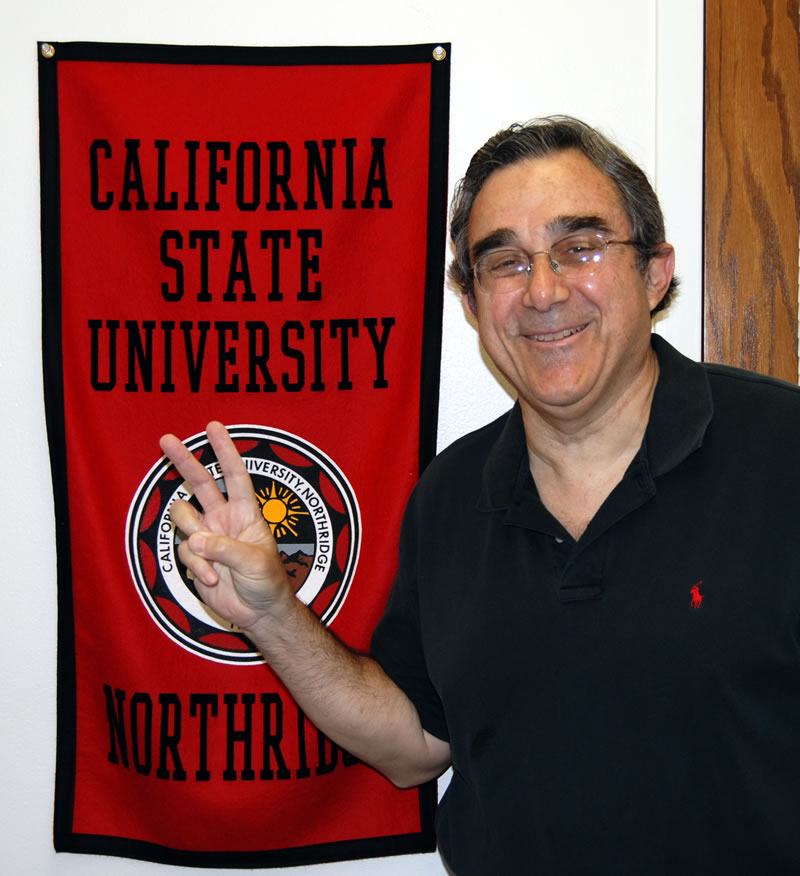The year I graduated, 1971, I received two diplomas. One said San Fernando Valley State College — had all the information, my name, my degree, and signatures of, I think it was Mr. Cleary. And then I had a second one that said California State University Northridge. So I was able to have them both plaqued and able to give one to each of my parents.
I started in 1968 and my first year I lived in the dormitory that was called Northridge Hall on Zelzah Ave. There was a male wing and a female wing, we were separated. The year I started I remember vividly the assassination of Martin Luther King, and the turmoil that that generated and then I remember studying for final exams the night that Bobby Kennedy was assassinated. There was a great deal of turmoil on the campus. There was a great deal of reverberations of what was occurring and society was reflected here on campus. I remember that there was a state of emergency declared and the Los Angeles Police Department had a riot squad on campus. There were protests that occurred. The African American students were lobbying for a Black Studies program. There was an area by the library — it’s not there anymore — called the Free Speech area, and there were usually rallies and demonstrations that were occurring there almost every day.
There was a lot of paranoia among student activists that we were being watched by our government. Years later I did a Freedom of Information Act request on myself and discovered that our worst fears were true. There was a file on me from those days here at Cal State Northridge. There were copies of articles I had written for the Daily Sundial that were in the file. There were informants that had been in meetings regarding anti-war activities that were reporting on what I was saying and doing, and the anti-war movement here at school.
In the archives there’s a flyer that I had hand written in 1971. It said “Laos invaded, is North Vietnam next? And it was a call for a meeting about what to do about that. There was a lot of activism on the campus in those days.
CSUN Stories – William Paparian Interview – Excerpt 2
Well I was a Theater Arts major and there were many distinguished teachers that were here in the Theater Arts Department at that time. There’s a very famous acting teacher named Jeff Corey who recently passed away who was very well known. There was another acting instructor named Lew Palter who then went on to found the Theater Arts Department at the California Institute of the Arts in Valencia .
I came to school, I wanted to pursue a career in the entertainment industry and found that I couldn’t separate my life on the campus from what was occuring in the society around us. There were very profound changes that were occurring in America during those years.
When I went to school there weren’t any black students in my high school, and my first year here in the dormitory there was a special program that was instituted to bring in African American students from South Central Los Angeles. And when Martin Luther King was assassinated, the white students really weren’t prepared to deal with the Black Experience and we had to come to terms with it. One of the things that I did was I took a class in Black theater that was taught by a very famous African American actor named William Marshall, and one of the students in the class was the son of a very famous African American singer named Lena Horne. . . It was a real adventure in interacting with African American students in a way we ordinarily wouldn’t have had that opportunity. I think that was a very positive thing in my life, was understanding the diversity in our society, which I had never really understood before coming to Cal State Northridge and I think that served me well in later years as an elected public official.

